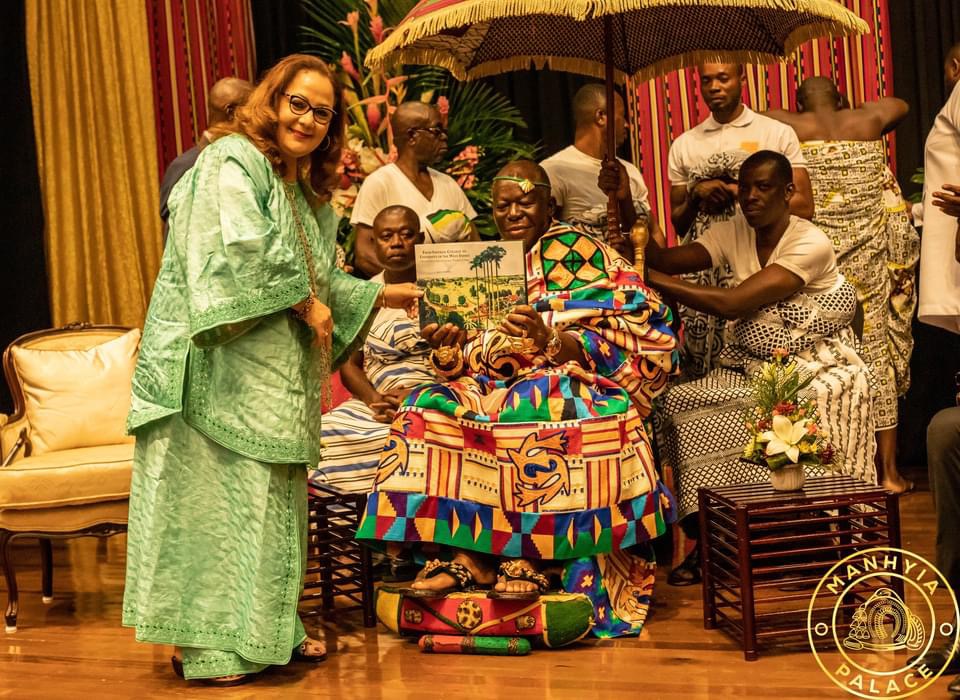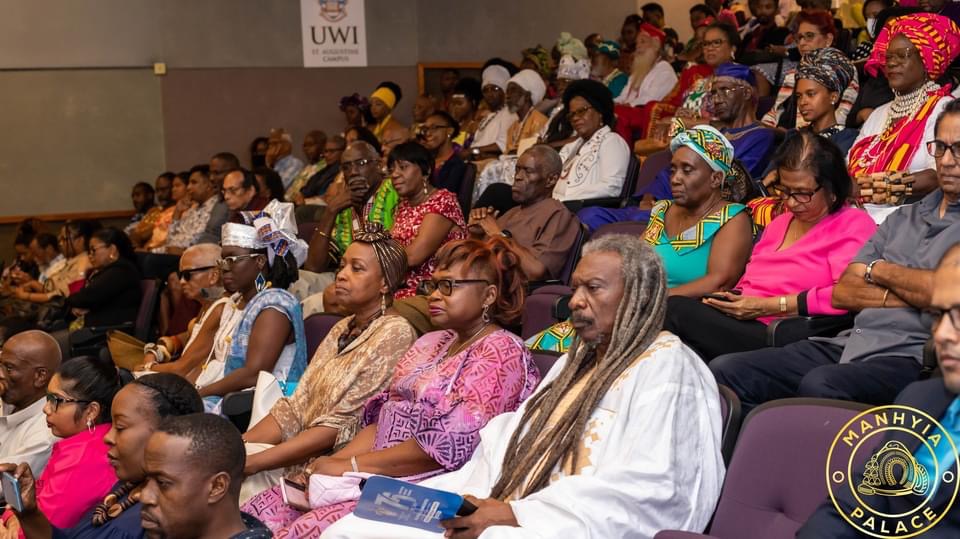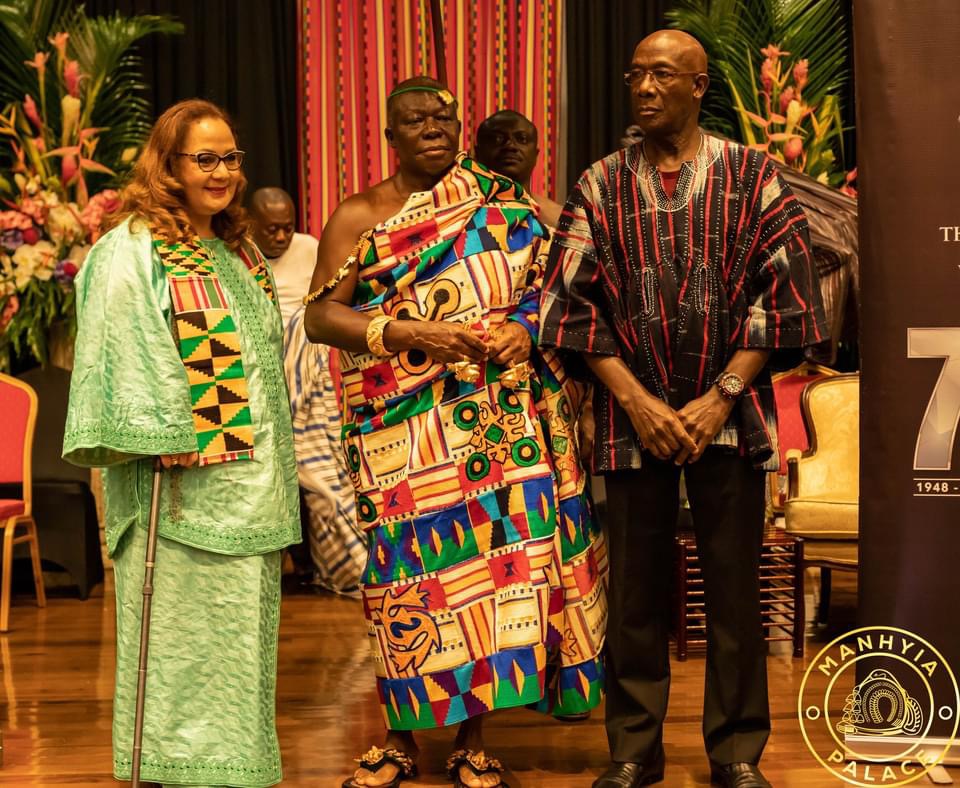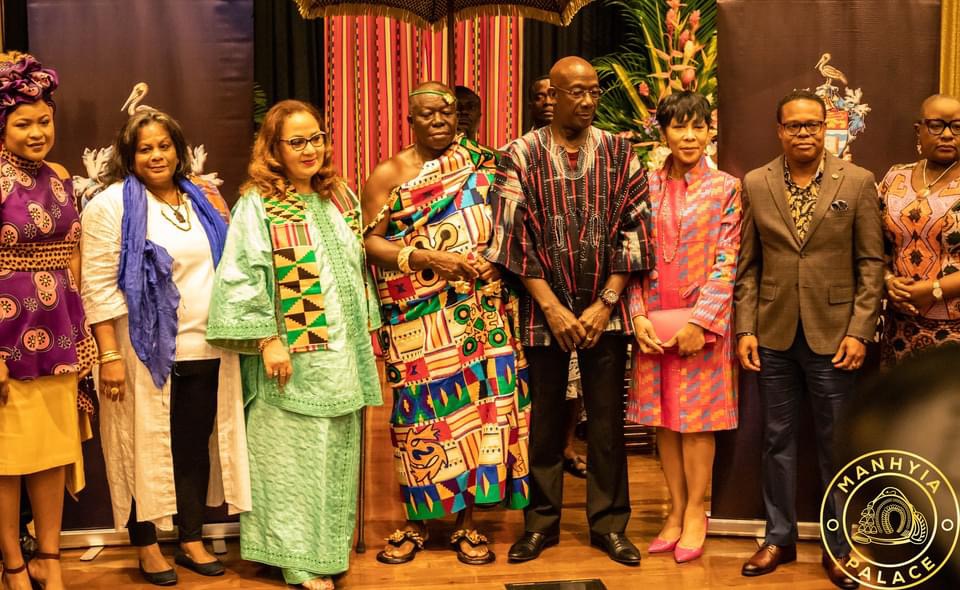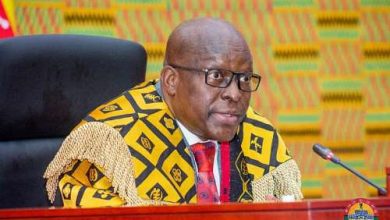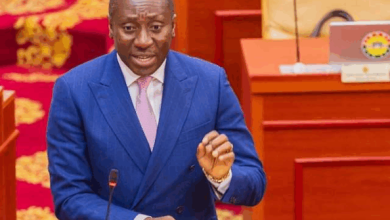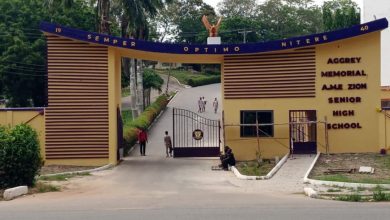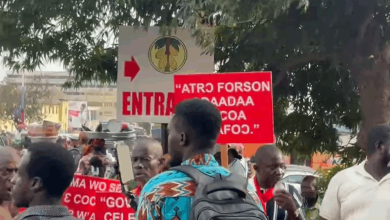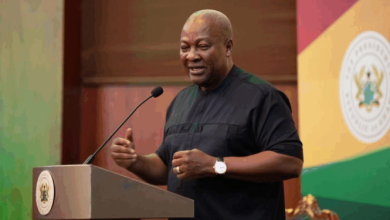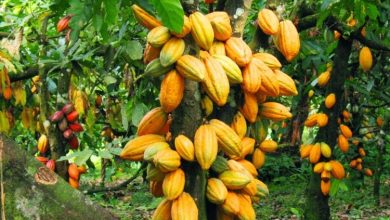My visit to Trinidad and Tobago is a “reconnection” mission – Asantehene
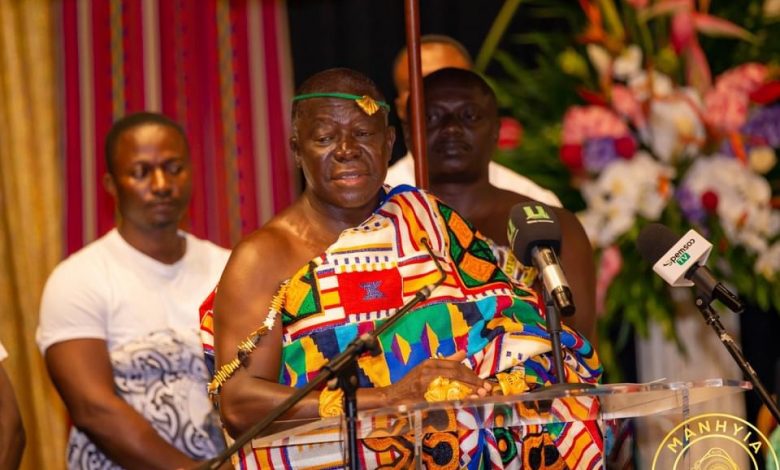
Otumfuo Osei Tutu II has said his visit to Trinidad and Tobago was in line with his quest to reconnect with people of African descent who were enslaved.
The 16th occupant of the Golden Stool said he became conscious of his duty to reconnect with the people in the Caribbean immediately he ascended the Golden Stool, and set out to do just that.
Delivering the Distinguished Lecture at the University of West Indies, St Augustine Campus, on the last leg of his visit to Trinidad and Tobago, the King said, “From the moment we ascended the Golden Stool of the Asante Kingdom, we have been conscious of the role destiny has placed on us to reconnect with every land where the seeds of our heritage have been sown and to encourage and help turn them into flower.”
In 2008, Otumfuo embarked on his first journey to the Caribbean when he visited Barbados. “Through the pain and agony of our history, through the incomprehensible destruction of the slave trade and the colonial subjugation, millions of our sons and daughters were thrown into boundaries across the sea centuries past.”
He added: “Millions of our own perished at the hand of slave masters in heart-wrenching circumstances but far from being servitude to oblivion by the tide, their seeds have germinated proudly bearing the glorious seeds we behold today in Trinidad and Tobago and the many beautiful nations of the Caribbean.”
Resilience
Using the fighting spirit of the Asante people as an example of the resilience of Africans to slavery, he said the famous adage of the Asante Kingdom on the porcupine: “Asante Kotoko: wo kum apem a apem bɛba” to wit, “if a thousand is killed, a thousand shall storm back’ fully reflected in the people of the Caribbean Islands in the United States, in Brazil and the heartland of Europe.
“Millions now stand tall on the ashes of the martyrs who fell testimony to the undying spirit which says ‘wo kum apem a apem bɛba’. Just as our spirits cannot be broken so we cannot be divided or estranged from our heritage,” Otumfuo stated.
History not fair to Africa
He said history has not been fair to Africa but that should not cripple the people to look forward with hope.
“When emancipation came, it was the perpetrators who were compensated and not us. The victims were left to themselves, but all is not lost. Let’s take hold of our own initiatives,” he said.
Flourishing states
The Principal, UWI, St. Augustine campus, Prof. Rose-Marie Belle-Antoine, said countries within Africa , including Ghana have been able to challenged the paradigm of persistent poverty and re-emerge as strong flourishing states . This, she noted, is a remarkable achievement and a testimony to the brilliant discipline and innovative spirit of the African people.
